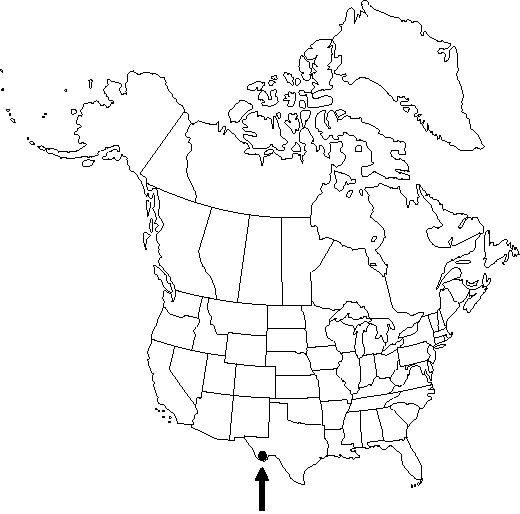Difference between revisions of "Juniperus flaccida var. flaccida"
FNA>Volume Importer |
imported>Volume Importer |
||
| (7 intermediate revisions by 2 users not shown) | |||
| Line 12: | Line 12: | ||
}}<!-- | }}<!-- | ||
| − | --><span class="statement" id="st- | + | --><span class="statement" id="st-undefined" data-properties=""><b>Trees </b>dioecious, to 12 m, single-stemmed to 1–2 m; crown globose. <b>Bark</b> cinnamon to reddish brown or gray to reddish brown, exfoliating in broad interlaced fibrous strips, that of small branchlets (5–10 mm diam.) smooth, that of larger branchlets exfoliating in wide strips or plates. <b>Branches</b> drooping; branchlets flaccid, 3–4-sided in cross section, ca. 2/3 or less as wide as length of scalelike leaves. <b>Leaves</b> green, abaxial gland variable, elongate, conspicuous, exudate absent, margins appearing entire at 20× but with irregular teeth at 40×; whip leaves 4–6 mm, not glaucous adaxially; scalelike leaves 1.5–2 mm, overlapping by 1/4–1/5 their length, apex rounded to acuminate, spreading. <b>Seed</b> cones maturing in 1 year, of 1 size, with straight to curved peduncles, globose, 9–20 mm, tan-brown to brownish purple when mature, glaucous, obscurely woody, with (4–)6–10(–13) seeds. <b>Seeds</b> 5–6 mm.</span><!-- |
-->{{Treatment/Body | -->{{Treatment/Body | ||
| Line 18: | Line 18: | ||
|elevation=900–2900 m | |elevation=900–2900 m | ||
|distribution=Tex.;Mexico. | |distribution=Tex.;Mexico. | ||
| − | |discussion=<p>This variety is found in Big Bend National Park, Texas. It is abundant in Mexico, where two additional varieties occur: var. poblana Martínez and var. martinezii (Pérez de la Rosa) Silba.</p> | + | |discussion=<p>This variety is found in Big Bend National Park, Texas. It is abundant in Mexico, where two additional varieties occur: var. poblana Martínez and var. martinezii (Pérez de la <i>Rosa</i>) Silba.</p> |
|tables= | |tables= | ||
|references= | |references= | ||
| Line 27: | Line 27: | ||
-->{{#Taxon: | -->{{#Taxon: | ||
name=Juniperus flaccida var. flaccida | name=Juniperus flaccida var. flaccida | ||
| − | |||
|authority=Schlechtendal | |authority=Schlechtendal | ||
|rank=variety | |rank=variety | ||
| Line 41: | Line 40: | ||
|publication year= | |publication year= | ||
|special status= | |special status= | ||
| − | |source xml=https:// | + | |source xml=https://bitbucket.org/aafc-mbb/fna-data-curation/src/2e0870ddd59836b60bcf96646a41e87ea5a5943a/coarse_grained_fna_xml/V2/V2_330.xml |
|genus=Juniperus | |genus=Juniperus | ||
|section=Juniperus sect. Sabina | |section=Juniperus sect. Sabina | ||
|species=Juniperus flaccida | |species=Juniperus flaccida | ||
|variety=Juniperus flaccida var. flaccida | |variety=Juniperus flaccida var. flaccida | ||
| − | |||
| − | |||
| − | |||
| − | |||
| − | |||
| − | |||
| − | |||
| − | |||
| − | |||
| − | |||
| − | |||
| − | |||
| − | |||
| − | |||
| − | |||
| − | |||
| − | |||
| − | |||
| − | |||
| − | |||
| − | |||
| − | |||
| − | |||
| − | |||
| − | |||
| − | |||
| − | |||
| − | |||
| − | |||
| − | |||
| − | |||
| − | |||
| − | |||
| − | |||
| − | |||
| − | |||
| − | |||
| − | |||
| − | |||
}}<!-- | }}<!-- | ||
-->[[Category:Treatment]][[Category:Juniperus flaccida]] | -->[[Category:Treatment]][[Category:Juniperus flaccida]] | ||
Latest revision as of 20:22, 5 November 2020
Trees dioecious, to 12 m, single-stemmed to 1–2 m; crown globose. Bark cinnamon to reddish brown or gray to reddish brown, exfoliating in broad interlaced fibrous strips, that of small branchlets (5–10 mm diam.) smooth, that of larger branchlets exfoliating in wide strips or plates. Branches drooping; branchlets flaccid, 3–4-sided in cross section, ca. 2/3 or less as wide as length of scalelike leaves. Leaves green, abaxial gland variable, elongate, conspicuous, exudate absent, margins appearing entire at 20× but with irregular teeth at 40×; whip leaves 4–6 mm, not glaucous adaxially; scalelike leaves 1.5–2 mm, overlapping by 1/4–1/5 their length, apex rounded to acuminate, spreading. Seed cones maturing in 1 year, of 1 size, with straight to curved peduncles, globose, 9–20 mm, tan-brown to brownish purple when mature, glaucous, obscurely woody, with (4–)6–10(–13) seeds. Seeds 5–6 mm.
Habitat: Rocky soils and slopes
Elevation: 900–2900 m
Discussion
This variety is found in Big Bend National Park, Texas. It is abundant in Mexico, where two additional varieties occur: var. poblana Martínez and var. martinezii (Pérez de la Rosa) Silba.
Selected References
None.
